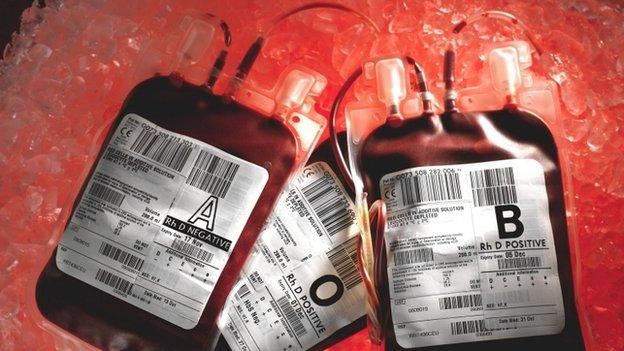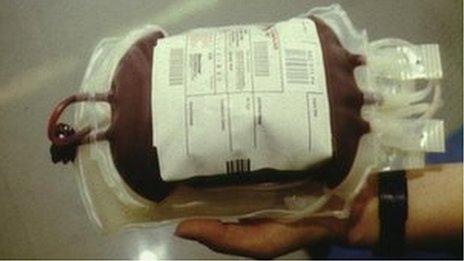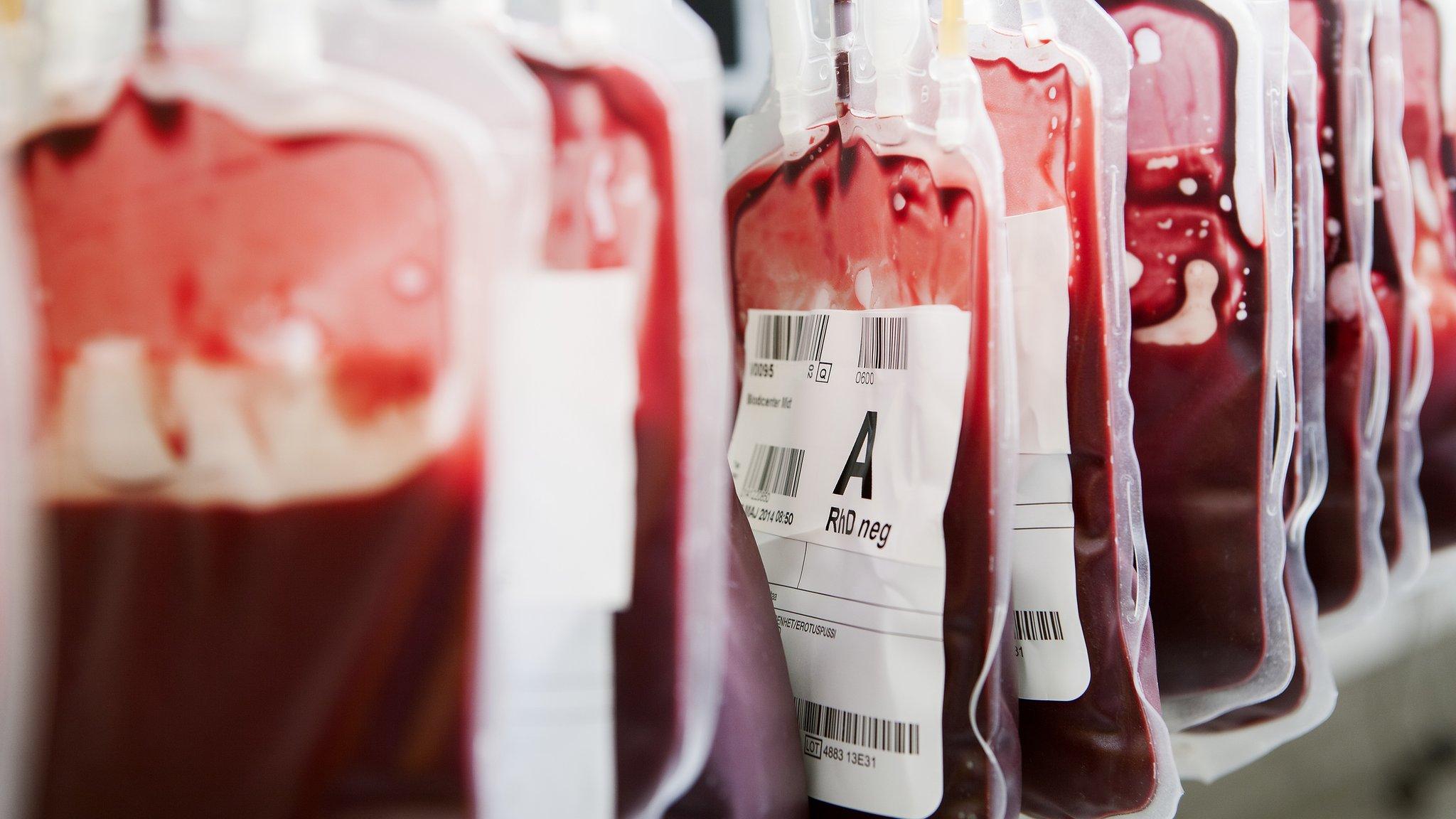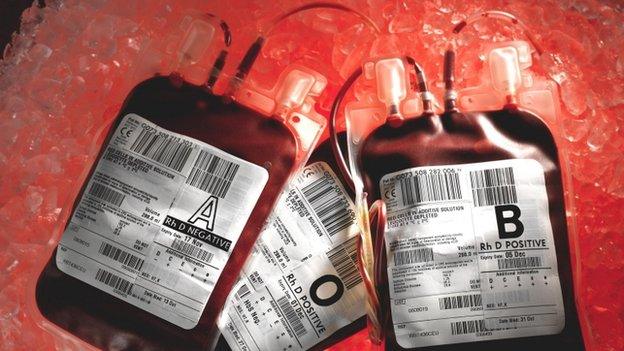Contaminated blood: Increased financial support for infected patients
- Published

People in Northern Ireland who were affected by the contaminated blood scandal prior to September 1991 are to receive increased financial support.
In the 1970s and 1980s, some blood products used to treat NHS patients were imported from the US.
They included donations from prisoners, who were at risk of hepatitis C or HIV.
More than 2,000 patients across the UK are thought to have died as a result of what was called "the worst treatment disaster in the history of the NHS"., external
Now Northern Ireland's health minister has announced a reform of a payment scheme that was established for patients infected following treatment.
'Life-changing impact'
The changes, which will also benefit patients' families, will bring Northern Ireland into line with England.
Announcing the news, Michelle O'Neill said: "I'm well aware that, although no amount of money could ever make up for the life-changing and tragic impacts that these events have had on a number of people, those who have been adversely affected should be given the financial support that they need."
Key features of the reformed scheme include all those infected receiving an annual payment.
This will include the £500 winter fuel payment as standard, without the need to apply for it.
Those infected with hepatitis C at stage One will get a new flat rate annual payment of £3,500, rising to £4,500 from 2018/19.
Partners or spouses at the time of death of a primary beneficiary will be entitled to a £10,000 one-off lump sum where the HIV/hepatitis C infection contributed to the death of their partner or spouse.
This will apply both to those who have already been bereaved and those who are newly bereaved.
More details of the changes can be found on the Department of Health website. , external
- Published23 July 2015

- Published15 January 2015

- Published25 March 2015
